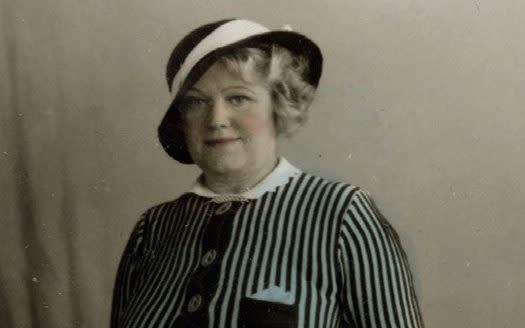How the treachery of a Scottish hairdresser who spied for the Nazis inspired Five Eyes

The Five Eyes intelligence network was born after MI5 unmasked a Scottish hairdresser as a Nazi spy involved in a plot against the US, a new book reveals.
MI5 decided to tip off the Americans about the Nazi plot to lure a US colonel to a hotel in Manhatten, overpower him and steal the country’s military secrets in the run-up to the Second World War.
The tip-off in the late 1930s opened up a channel of intelligence sharing between the UK and US that has now expanded into one of the most formidable spy alliances in the world, known as Five Eyes and also comprising Canada, Australia and New Zealand.
The book, The Secret History of the Five Eyes, based on national archive accounts, shows that the seeds of the alliance were sown much earlier than previously thought, well before MI5, MI6 and the codebreakers of Bletchley Park started sharing their secrets with the FBI and the embryonic CIA during and after the Second World War.

The early contacts came about because of MI5’s investigation into a woman called Jessie Jordan, an unassuming Scottish-born hairdresser in her 50s who was working as a spy for the Abwehr, the intelligence arm of the German armed forces responsible for Adolf Hitler’s counterintelligence and sabotage campaigns.
She had married a German, emigrated and been trained in spy tradecraft before returning to Scotland, where she set up a hairdressing business in Dundee as her cover to travel the country, making notes and sketches of military installations in the UK.
An assistant in her hairdressing business, Mary Curran, became suspicious of her travels, including to Germany, and one evening in December 1937 found a map of military installations in her bag. Ms Curren handed it to police who passed it onto MI5.
The spy agency established that Ms Jordan was, in fact, a conduit - a “letter box” - for forwarding post and packages from Nazi agents around the world.
A series of letters intercepted, read and photographed under a Home Office warrant secured by MI5 were from an agent known as “Crown” and revealed the plot to lure Colonel Eglin, the commander of Fort Totten military facility in New York, to the McAlpin hotel, “overpower” him and steal his defence plans “by force”.
Fair, plump, and over 50 – she was not your ordinary spy
The MI5 investigation was led by Guy Liddell, the deputy head of the agency’s “B-branch”, which specialised in rounding up, and sometimes recruiting, Nazi and Soviet spies. He had to decide whether to tip off the Americans.
“A tip-off to American authorities through the US embassy in London could compromise MI5’s case against Jessie without even ensuring the arrest of Crown, whose real identity was unknown to the agency,” writes Richard Kerbaj, the book’s author.
“However, Liddell and his team made a decision that would step up and reform the basis of intelligence-sharing between British and US authorities, unknowingly contributing to the foundation of what would become the world’s most powerful spy network – the Five Eyes.”
The tip-off helped the Americans unmask “Crown” as Guenther Rumrich, a US serviceman with Austrian parents, who was in custody after a botched attempt to steal passports. Confronted with the evidence of the plot against Colonel Eglin, he confessed.
Rumrich, who had volunteered to join the Abwehr two years earlier in 1936, was jailed for two years. Ms Jordan was sentenced to four years in prison under the Official Secrets Act in May 1938.
She was described by one reporter as “so completely ordinary in appearance that no one without foreknowledge would have suspected her espionage. She was not the dark-haired and glamorous beauty of the melodramas, but fair, plump, and over 50.”
Her motivation was not the money the Nazis paid her. Instead, she was “largely driven by the adventure of spying because it appealed to her obsession with thriller novels”, says the author.
Abandoned by her father as a child and a single mother twice married, Ms Jordan explained to a reporter: “Sitting in my prison cell, I have come to the conclusion that it was sheer unhappiness, coupled with a love of excitement and change, that made me adopt the course I did.”

